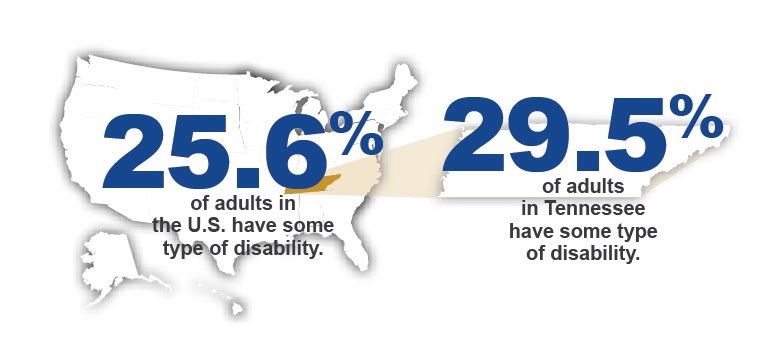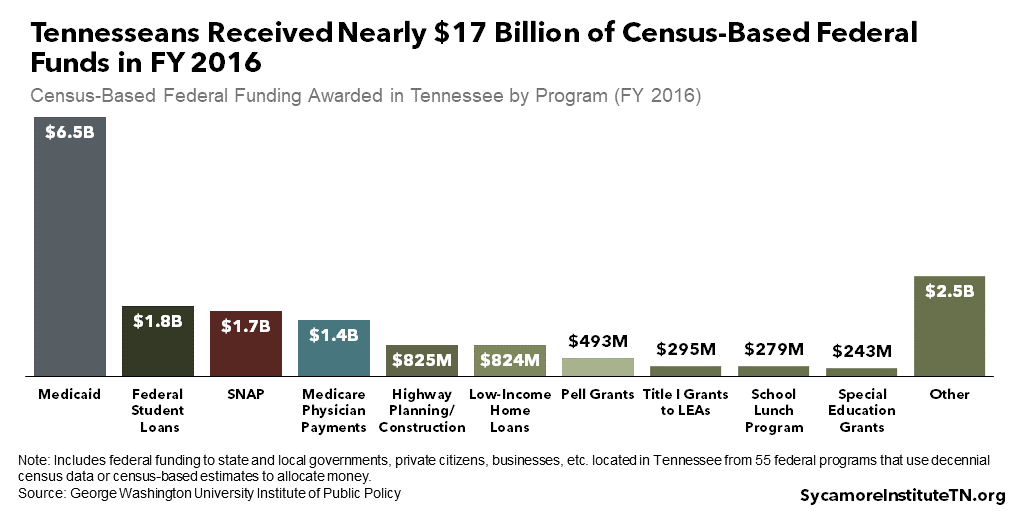Breaking Ground 101 - Your Chance to Be Counted: Why the Census Matters
by Jolene Sharp, Chief Public Information Officer, Tennessee Council on Developmental DisabilitiesEvery 10 years, the United States counts every person living in our country through a census. This year, 2020, is time for a new census.
The census affects many key things:
- How much money states get for Medicaid (TennCare), housing programs, food help, and schools. This includes funding for special education, Medicaid disability supports, housing help for people with disabilities, employment supports through Vocational Rehabilitation, and many other disability services.
- How many seats in Congress our state gets.
- Where lines are drawn for school and voting districts.
- How tax money is shared with cities and counties, for things like hospitals, roads, fire departments, and other important services.
- How much money state councils on developmental disabilities get. (That’s us and our sister councils in other states!)
Tennessee Governor Bill Lee wants citizens to know how important the census is for our state. “We need your help to get an accurate count,” Governor Lee said in a video announcement. “The census is a once-in-a-decade process of gathering information from households across the country. It’s completely confidential and critical to making sure our hard-earned taxpayer dollars come right back into Tennessee.”
If you don’t take part in the census, you will not be included in the count of how many people live in your community and in our state. That means less funding for important disability and community services.
People with disabilities can be under-counted in the census for many reasons. These reasons include:
- accessibility issues,
- lack of access to computers and internet,
- higher rates of homelessness, and
- fears about how answering census questions could affect disability benefits.
When will the census happen?
The census process begins in March. You will receive a form in the mail with directions on several ways to complete the census. You will be asked to fill out the census by April 1.
The U.S. Census Bureau will share the new census data with the public in November 2020.
How do I get counted in the census?
Only one person in each home should fill out the census for everyone living there. If you live with others, you can talk about who will fill out the census.
There are three ways you can take part in the census on your own:
- Online through an accessible website
- On the phone, with census workers who speak more than 12 languages, and with Deaf-friendly services
- A survey sent to you by mail
You can ask for help filling out the census, from someone you know or from a census worker. If you don’t have a computer or internet but want to fill out the form online, you can use your local library.
If you don’t fill out the census using one of those three ways, a census worker may come to your house in May, June, or July to help you fill it out. All census workers will have a badge with their picture and information so you know they really work with the census.
Can my information be used against me?
No! The law says your census information can only be used for the census count. It won’t be shared with law enforcement or immigration agencies or used in decisions about whether you qualify for benefits.
Will the census ask if I am disabled?
No. The census won’t ask whether you have a disability. As we already mentioned, it’s important for people with disabilities to be counted. The amount of money given to crucial programs is decided by how many people live in your city, county, and state.


